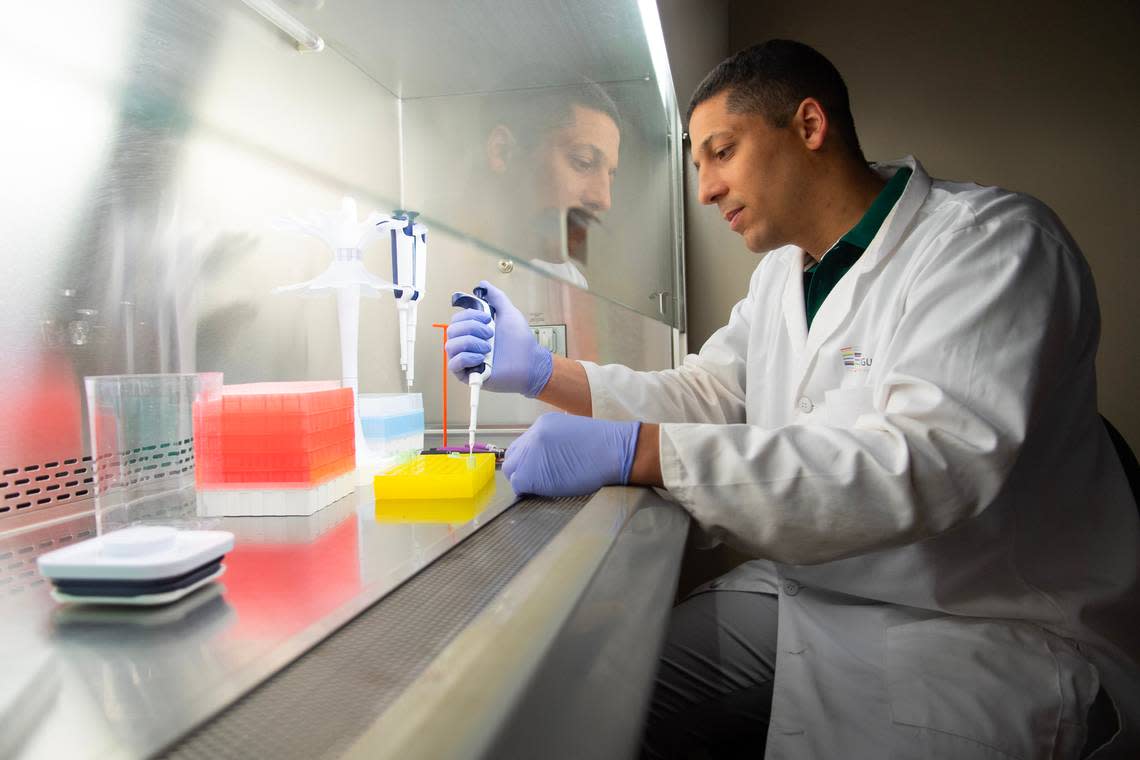Why were some asymptomatic with COVID? UNC Charlotte professor’s study offers an answer

Some people who have COVID-19 may be asymptomatic because of different genetics, according to a new study published this week in the journal Nature and co-authored by a UNC Charlotte professor.
Danillo Augusto at UNC Charlotte worked with others at the University of California San Francisco and La Trobe University in Australia. They relied on data from 29,947 people who were unvaccinated and screened using a mobile application designed to track COVID-19 symptoms. Of the total, 1,428 reported a positive test for the virus. They all had their DNA sequenced to analyze their genes.
COVID-19 is known to produce symptoms such as fever, chills, cough, fatigue and body aches. But researchers found a specific genetic variation is responsible for some people avoiding any ill effects. The study focused on a group of genes that determine whether cells are infected or healthy — human leukocyte antigens — and more specifically focused on a gene known as HLA-B*15:01.
People who didn’t show symptoms carry a type of white blood cells with memories of pre-pandemic viruses and could distinguish COVID-19 and SARS-CoV-2. According to the study, an ability for the cells to find SARS-Cov-2 with memories from earlier viruses allowed them to kill it quickly.
What you should know
In an interview Thursday with The Charlotte Observer, Augusto said there aren’t any specific ways to predict who carries the different genes and that it’s common. The researchers found that 10% of European Americans have the gene, but they didn’t offer a percentage for other ethnicities.
“Those genes are highly diverse, and very normal among people. They are highly variable among populations. It’s not something rare that one or two individuals have,” Augusto said.
But Augusto said the information found in the study he co-authored could be valuable in developing more specific vaccines.
He said the study proved how difficult it was to collect data from people in person during the pandemic and the importance of innovations in technology.
“I think this was kind of an example showing how can we can use like mobile application and technology in general to actually perform health-related studies,” Augusto said.
Unlike other studies looking at the HLA gene, Augusto said this one was novel because it focused on something other than the disease caused by the coronavirus.
“What is distinguished about this study is that we focus on asymptomatic infection rather than severe disease,” Augusto said.
How’d they find people?
Researchers started by sending emails to people who had donated blood several years before the pandemic and already volunteered genetic information. After that, they started tracking symptoms of the volunteers for seven months with a mobile application, Augusto said. That was a challenge.
“We knew that because we’re targeting individuals it will be very difficult to collect samples because individuals that don’t have symptoms, don’t seek medical attention. We knew that it’d be very difficult to get some blood, for example, to get DNA,” Augusto said.
What’s next?
Augusto said the group of researchers wants to continue their work by finding out more about the immune cells and different effects on COVID-19.
“One thing that we want to know further is to understand if this genetic variant has the same effect in other ancestry. I think we would like to learn how the features of the T cells and other immune cells make people that have the variant, more protected against symptoms,” Augusto said.

